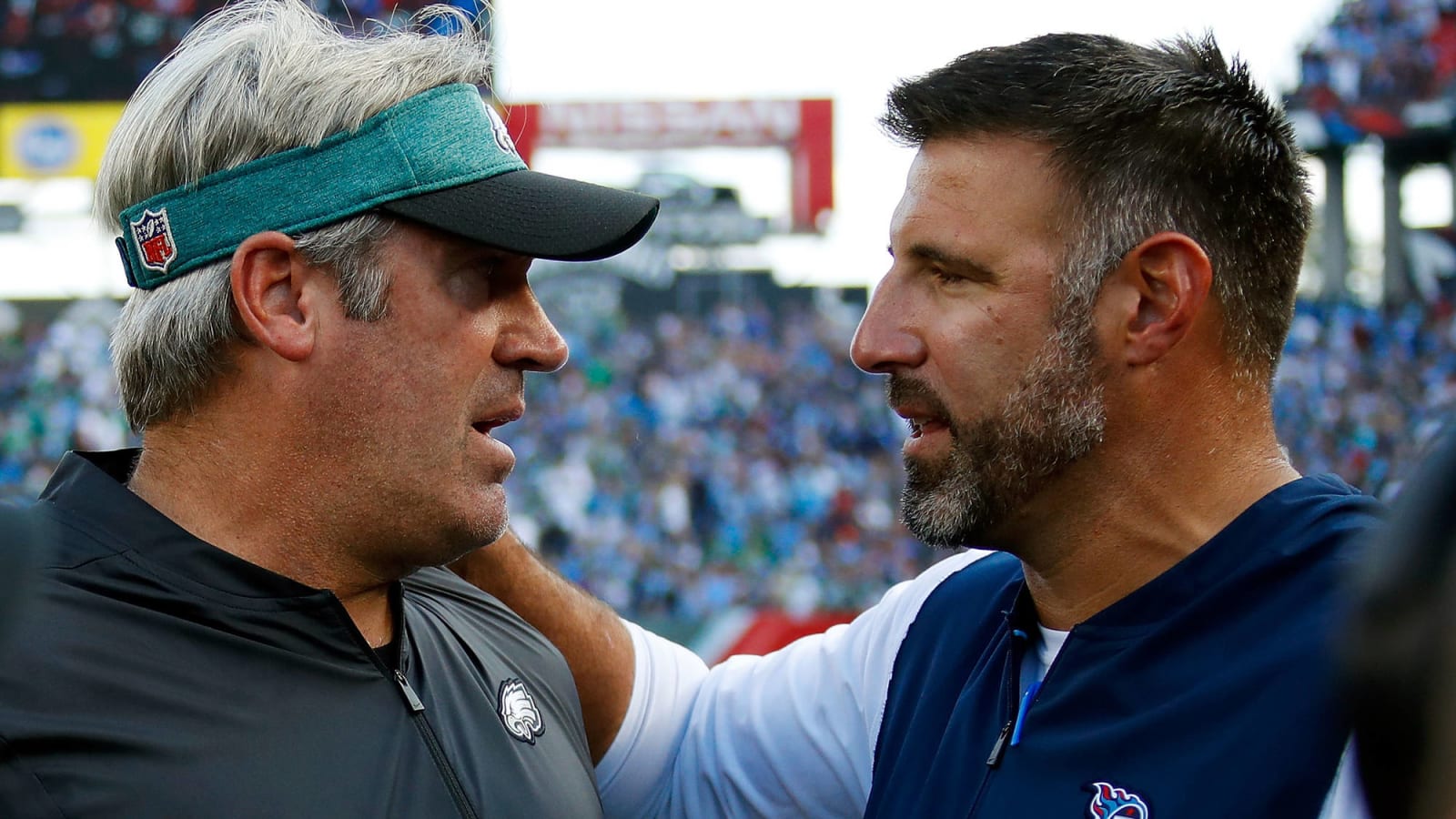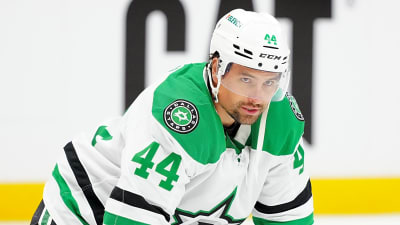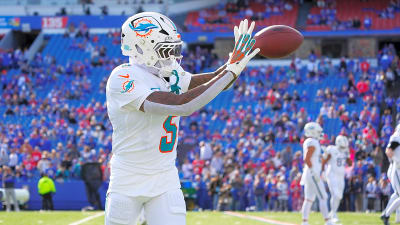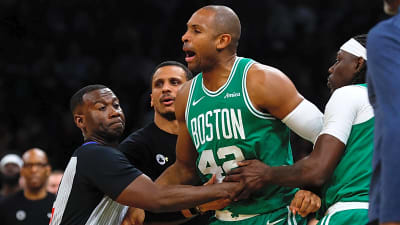
For new NFL coaches, situational aggression is now the norm
It’s not even halfway through the regular season, and new Tennessee Titans coach Mike Vrabel has already made headlines twice for the kind of aggressive decision-making late in games that was once thought anathema to NFL coaching — or at least a surefire recipe for getting fired.
It might not have worked out Sunday, like it did in Week 4 against Philadelphia, as the Titans’ decision to pass on a two-point conversion attempt from the one-yard line failed. This was after Tennessee’s initial attempt after the touchdown, also a pass, resulted in a defensive penalty that gave the Titans another shot from closer range.
It’s fair to argue that the Titans should have run with that second-chance play call. The debate could go further into whether it was smart or not to just kick the extra point and play for overtime. The math favors going for two in the long run, but NFL coaches have long strategized in a conservative manner that forestalls significant decisions during the course of games. The odds are not good enough that teams are immune from failure in doing this. They’ll just fail less — and that still means facing the music when aggression doesn’t pay off.
Since the league moved the extra point back a few years ago, it's no longer quite a given, as we saw Sunday in Baltimore. Justin Tucker might have been automatic to that point in his career on extra points, but even he eventually fell prey to the longer distance.
Vrabel is an example of a trend over the last few years in which new coaches are challenging the conventional wisdom of situational football. Think of those who have startled fans so far in 2018 with daring play calls in crunch time. There's Frank Reich opting to attempt a fourth down on his own side of the field rather than accept a near certain tie against the Texans. It didn’t work and wasn’t even really statistically sound, but that kind of daring is rarely seen in NFL coaching circles. If nothing else, it fired up his players and gave them incentive to play for him.
Given what little is expected of the Colts this season, that’s not a terrible thing to establish, even if it means costing the team a tie.
Sean McVay went for it on fourth-and-1 with a 33-31 lead and a minute-and-a-half left two weeks ago against Seattle. More times than not, that play works, when needing only a yard, but there’s still the decent possibility that it won’t. That’s the kind of thing coaches usually deferred on in the past, opting to make the chickens do the most work possible before coming home to roost.
Then, of course, there’s Eagles coach Doug Pederson, who couldn’t have been any more aggressive in Philadelphia’s win in the Super Bowl over New England. Most notably, the Eagles converted a fourth down before the end of the first half to score a touchdown despite already holding the lead. (They saw what complacency did to the Falcons the year before.) Pederson is having problems maintaining the same energy so far this year, but his is an example that has resonated around the league. Making use of the "Philly Special" has, at any rate.
Part of this trend has to be attributable to the leaguewide rise in offensive output. It’s no longer safe or sometimes even practical to trust the defense to hold leads of one score, or even less than a field goal, given how easy it is for offenses to advance the ball to at least field-goal range. Even if a defense is sound, there’s a good chance an illegal contact or roughing the passer penalty is going to be enough to get the opponent in its kicker’s range.
So whether it means going for two at the end of games, attempting fourth downs to run out the clock or giving your team any kind of shot at a winning score, it’s going to become best practice, the way the style of the game is changing, to leave matters up to the offense.
It makes sense that this would dawn on more recent hires than the established class of coaching. Playing it safe can lead to lengthy, Marvin Lewis-style careers. Ron Rivera had a short burst of aggressive decisions for maybe a season or two, collected a marketable "Riverboat" nickname, then regressed to the mean in the years since. Risk aversion is a hell of a force.
Fresh eyes have led to refreshing choices during this NFL season. Results are the only thing that bear out in the long term. While Vrabel and Reich are leading teams seemingly destined for the middle of the pack, McVay could offer the league a second straight year of a coach who’s been on the job fewer than three years and is willing to buck what’s expected when it counts the most.
More must-reads:
- Twitter reacts to Titans going for two and losing
- Doug Pederson blasts media following Eagles’ latest loss
- The 'NFL head coaches' quiz
Breaking News
Trending News
Customize Your Newsletter
 +
+
Get the latest news and rumors, customized to your favorite sports and teams. Emailed daily. Always free!








